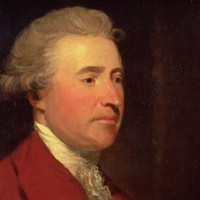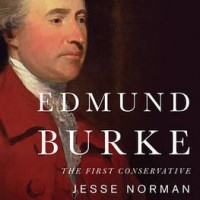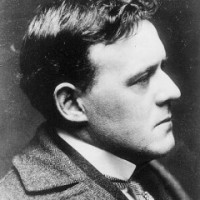Edmund Burke: the greatest Whig, the first conservative , by Daniel Hannan
I still remember the shock I felt when I was about half way through Burke’s Reflections on the Revolution in France. I was spending an undergraduate summer meandering slowly from Chicago to New Orleans when, in the middle of a passage about something else, I came across a glancing reference to France’s “captive king”. Stunned, I put the paperback down and stared round-eyed at my fellow Greyhound passengers.
Until that moment, it had not properly hit me that the entire book, the most penetrating denunciation of revolutionary excess ever composed, had been written before the Terror started. As a piece of political prophecy, it stands unsurpassed.
Burke predicted the chaos, the repression, the arbitrary confiscations , the executions and even, with uncanny foresight, the Bonapartist dénouement:
In the weakness of one kind of authority, and in the fluctuation of all, the officers of an army will remain for some time mutinous and full of faction, until some popular general, who understands the art of conciliating the soldiery, and who possesses the true spirit of command, shall draw the eyes of all men upon himself. Armies will obey him on his personal account. The moment in which that event shall happen, the person who commands the army is master of your whole republic.
There are never any prizes in politics for being right too early. Burke stood apart, an ascetic soothsayer, a lonely vate, descrying a future invisible to his contemporaries. He was right about America, right about Ireland, right about India and, outstandingly, right about France. As is usually the way, his peers never properly forgave him.
We may honour Burke as the first and greatest of those politicians who put ideas before preferment: the patron saint of all the Enoch Powells, so to speak. For three decades, Burke was the most gifted and eloquent MP in the Commons; yet he spent less than two years in government – resigning his junior ministerial post, typically, on a point of fairly minor principle.
We might venerate him, too, as one of the finest orators and pamphleteers of any age. If you think it odd that, as a teenager, I was reading Burke for pleasure on a Greyhound bus, I can only assume that you haven’t come across his prose. He is one of that tiny number of writers, along with Macaulay and Orwell, whose style pulls you along pretty well regardless of what they are talking about.
All this, though, is to miss the real significance of Burke. He was the first modern conservative thinker, and one of the most penetrating and complete political philosophers to have written in English. It is this aspect of the great Irishman that captivates Jesse Norman, his brilliant biographer – and incidentally, the Conservative MP for Hereford.
Read the complete article in The Telegraph
Burke, Party, and the Human Person, by J.P. O’Malley
The philosopher and statesman Edmund Burke is often lauded as the founder of modern conservatism. Burke was born in Dublin in 1729 and educated at Trinity College. In 1750 he moved to London, where he stayed for the remainder of his life.
When he arrived in London, Burke had a very brief career in law, but he soon dedicated his life full-time to critical thinking, writing, and politics. Over his long and distinguished career Burke published a number of groundbreaking books, including A Philosophical Enquiry into the Origin of Our Ideas of the Sublime and Beautiful and Reflections on the Revolution in France.
Burke lived during an extraordinary period in British history, where his good friends included Samuel Johnson, Adam Smith, and David Hume.
In his new book, Edmund Burke: The First Conservative, Jesse Norman dissects Burke’s outstanding intellect and his career. He then asks how Burke’s ideas might be applied to modern politics.
Jesse Norman is a Conservative MP for Hereford and South Herefordshire in the UK. He is a senior fellow at the UK think tank Policy Exchange and has taught philosophy at University College London and Birkbeck College.
In the book you discuss how Burke believed the only way to destroy what he insisted was the “King’s network of patronage” was through political parties. Can we see this as the precursor for the modern political party?
Well, the idea of a political party for Burke is contrasted with the idea of a faction, which is a group of people who come together to achieve a goal. They have no further glue that keeps them together after this goal and therefore they tend to disperse. In opposition to that idea is a party, in which a group of people are united around a principle that cannot be exhausted. Therefore they do not disperse after some particular achievement. They maintain themselves.
What is so fascinating about Burke’s conception of a political party is that he then builds into this a wider notion of what you might call a para-constitutional role. This is where political parties serve a number of functions: they act to debate, to create an oppositional government, to train and recruit political talent, and to make political principles more effective and create an open government.
So I think when people denounce political parties now within our current political system, they are often unaware of the alternatives. And the alternatives are a system of factions, which you see in the eighteenth century, before the idea of party politics really took over. If it’s not a politics of faction, then you get a politics of special interests: this is what you see in America presently, where very lightly whipped parties are dominated by a money interest.
You describe Burke as one the earliest postmodern political thinkers. You also refer to him as one of the greatest critics of the modern age and of liberal individualism. Can you briefly talk about this?
Well Burke is not a postmodernist in the sense that he does believe that there is truth and falsehood. He doesn’t believe that everything is a matter of narrative or power relations. But he is a postmodern: that is to say his thought contains within it a critique of modernity. And that critique begins with an understanding of human nature. Because where modernity goes wrong—from a Burkean perspective—is in the application of human nature to our reasoning of human affairs.
That is something that you find within liberal individualism: this idea of treating a human being as a mere economic agent. This gives rise to cultural feedback that then bends the nature of humans, because they react to how they are understood. So you have this perception that people are simply motivated by greed and fear. That greed-and-fear psychology then gets embedded in a culture.
But what Burke says is that humans are not mere economic agents; what really matters is how they link with each other. We cannot see people only in terms of incentives, but in terms of habits and affections as well.
When you do that, you get a rich conception of the social order. It’s an idea where people are not just driven by greed.
You get a much better idea and understanding of how people actually behave. You also avoid these effects where people are encouraged to be greedy, and therefore they become greedy as a result.
Read the complete interview in The University Bookman
Why Belloc Still Matters, by R.J. Stove
An author too robust and significant to be wholly un-personned can still be marginalized. Consider this elegant pasquinade, which years ago won a parody-contest award in Britain’s New Statesman and which employs the same rhyme scheme and meter as Hilaire Belloc’s own “The chief defect of Henry King”:
The chief defect of dear Hilaire Was not the clothes he used to wear, The curious hat and monstrous cloak, Paraded as some kind of joke. No, Hilaire’s fault, and well he knew it, Was, all he did, he’d overdo it… There’s more—he held the strongest views On politicians, and on Jews, Such as, today, might give one cause To think of Race Relations Laws. But that of Belloc is the worst That can be said. His comic verse, His Cautionary Tales, his Peers, His Beasts will last for countless years, Delighting readers old or young Who share Hilaire’s adopted tongue.
Well, that’s put Dear Hilaire back in his box, hasn’t it? If Belloc’s entire literary merit lies in his having catered to the A.A. Milne and Edward Lear demographic, we need no more bother ourselves with his wider aims than seek deep epistemological insight from re-reading about Pooh Bear or The Dong With The Luminous Nose. But then the New Statesman has never claimed theological expertise. Others, who do possess such claims, and who in many instances share Belloc’s Catholicism, have been at least as hostile. Malcolm Muggeridge complained, “although he has written about religion all his life, there seemed to be very little in him.” Six years before the Latin Mass’s recent anti-Belloc enfilade, St. Louis University’s James Hitchcock (in the May 1996 issue of Crisis) likened Belloc to “a man with a machine gun—by spraying shots everywhere he inevitably hit some targets, but many of his bullets went astray.” This allegation can at any rate be argued over, unlike certain antics of the occasional self-confessed Belloc fan. (Such as John Anderson, who passed as the doyen of Australian philosophy during the 1930s, 1940s, and 1950s and who labored with surrealistic persistence to reinterpret Belloc’s Servile State as a sacred text for antipodean atheist head-kickers. When Belloc’s friends included historical illiterates like Anderson, he hardly needed foes.)
How stands the case for the prosecution? In particular, was G.M. Trevelyan, Regius Professor of History at Cambridge 1927-1940, justified in having flatly called Belloc “a liar”?
Occasionally, alas, yes. Belloc confided as much himself, to a co-religionist at that: the British historian, newspaperman, and editor Douglas Woodruff. While going several debating rounds in print against his merciless ultra-Protestant detractor, the once-celebrated controversialist G.G. Coulton, Belloc came out with one assertion so breathtakingly implausible that it moved Woodruff to inquire, “But is it true?” “Oh, not at all”, Belloc retorted. “But won’t it annoy Coulton?” Such a deliberate, impolitic falsehood clearly sprang from insensate bravado rather than from malice. It is doubtful, moreover, whether the historian who hastily and occasionally deceives others is half as dangerous as the historian who consistently and lucratively deceives himself. (Many a reader obligated to plow through the unrelenting sanctimony of more recent and more fashionable gurus than Belloc—Arthur Schlesinger expounding the immaculate conception of JFK; Eric Hobsbawm assigning a similar redemptive role to the proletariat; Francis Fukuyama hyperventilating about free-market dogma’s limitless appeal to any polity, however Lower Slobbovian—must have felt increasingly inclined to welcome from these sources an honest lie or two.) Still, Belloc’s mendacity at that juncture defies excuses and leaves behind a singularly nasty odor.
An even graver sin, curiously slighted by Belloc’s most recent biographers, A.N. Wilson (Hilaire Belloc, 1984) and Joseph Pearce (the shorter, more reverential Old Thunder: A Life of Hilaire Belloc, 2002), occurs repeatedly in Belloc’s analyses of the French Revolution. Notwithstanding the fervor with which pope after pope—especially, in Belloc’s youth, St. Pius X—had declared support for Jacobins and indeed Girondins to be incompatible with the most basic Christian decency, Belloc remained as eupeptic as any Charles James Fox about the entire pageant of French politics from the Bastille’s fall via Robespierre to Napoleon. Revolutionary genocide against the Vendéens and Chouans scarcely touched Belloc’s consciousness. On his last (1937) tour of the U.S., he accused Americans of wanting to hear “48,376,277 times…that war is all wrawng and why cahunt everyone in Yurrup live peaceably same as us; that Religion don’t count same as it useter ’cos there’s more enlight’nment now.” So he could perceive, and denounce, lunatic world-saving Wilsonian optimism when it fell from his hosts’ lips. Why that optimism somehow became acceptable when the increase in “enlight’nment” had been effected by the guillotine, instead of by American presidential overreach, Belloc never explained.
This all amounts to a grim indictment. What case for the defense can outweigh it? There actually exist two such cases: first, Belloc’s daunting percipience; second, his equally daunting versatility as a poet.
Read the complete article in The Imaginative Conservative


